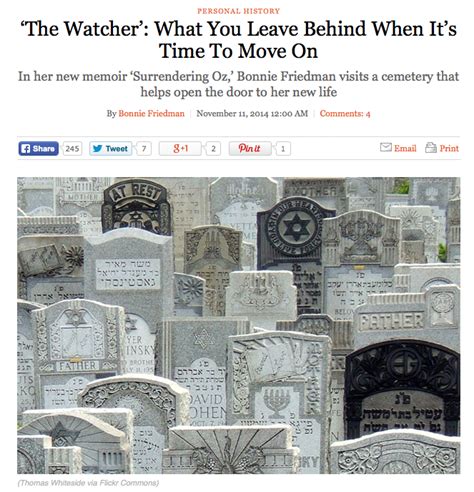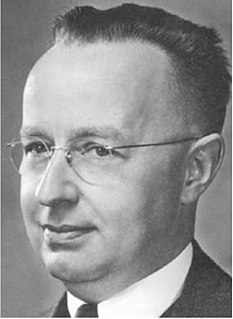Top 1200 One Sentence Quotes & Sayings - Page 2
Explore popular One Sentence quotes.
Last updated on October 5, 2024.
Writing keeps me at my desk, constantly trying to write a perfect sentence. It is a great privilege to make one's living from writing sentences. The sentence is the greatest invention of civilization. To sit all day long assembling these extraordinary strings of words is a marvelous thing. I couldn't ask for anything better. It's as near to godliness as I can get.
The first draft of everything, I write longhand. One of the nice things about that is that it makes you keep going. If you write a bad sentence on the computer, then it's very tempting to go back and fidget with it and spend another 20 minutes trying to make it into a good sentence. When you're handwriting, you really just have to move on.
I revise constantly, as I go along and then again after I've finished a first draft. Few of my novels contain a single sentence that closely resembles the sentence I first set down. I just find that I have to keep zapping and zapping the English language until it starts to behave in some way that vaguely matches my intentions.
Most people write the same sentence over and over again. The same number of words-say, 8-10, or 10-12. The same sentence structure. Try to become stretchy-if you generally write 8 words, throw a 20 word sentence in there, and a few three-word shorties. If you're generally a 20 word writer, make sure you throw in some threes, fivers and sevens, just to keep the reader from going crosseyed.
That doesn't make any sense. Sorry. There's no known way of saying an English sentence in which you begin a sentence with "in" and emphasize it. Get me a jury and show me how you can say
"In July" and I'll go down on you. That's just idiotic, if you'll forgive me for saying so. It's just stupid... "In July"; I'd love to know how you emphasize "In" in "In July". Impossible!
Meaningless!
To anyone who has followed the practice of using profanity or vulgarity and would like to correct the habit, could I offer this suggestion? First, make the commitment to erase such words from your vocabulary. Next, if you slip and say a swear word or a substitute word, mentally reconstruct the sentence without the vulgarity or substitute word and repeat the new sentence aloud. Eventually you will develop a non-vulgar speech habit.
Every sentence in order to have definite scientific meaning must be practically or at least theoretically verifiable as either true or false upon the basis of experimental measurements either practically or theoretically obtainable by carrying out a definite and previously specified operation in the future. The meaning of such a sentence is the method of its verification.
The secret of good writing is to strip every sentence to its cleanest components. Every word that serves no function, every long word that could be a short word, every adverb that carries the same meaning that’s already in the verb, every passive construction that leaves the reader unsure of who is doing what—these are the thousand and one adulterants that weaken the strength of a sentence. And they usually occur in proportion to the education and rank.
Exclamation points are the most irritating of all. Look! they say, look at what I just said! How amazing is my thought! It is like being forced to watch someone else's small child jumping up and down crazily in the center of the living room shouting to attract attention. If a sentence really has something of importance to say, something quite remarkable, it doesn't need a mark to point it out. And if it is really, after all, a banal sentence needing more zing, the exclamation point simply emphasizes its banality!
I was always aware, reading Chesterton, that there was someone writing this who rejoiced in words, who deployed them on the page as an artist deploys his paints upon his palette. Behind every Chesterton sentence there was someone painting with words, and it seemed to me that at the end of any particularly good sentence or any perfectly-put paradox, you could hear the author, somewhere behind the scenes, giggling with delight.
A lot of the letters that are coming in - a lot of them are queries or comments - are one sentence long... These are from Twitter. And if you look at the nature of those one sentence letters, most of the time it's something that came to somebody's mind - somebody walking down the street had a thought and sent it out. If they thought about it for two minutes they would not have sent it.
Looking out of my window this lovely spring morning I see an azalea in full bloom. No, no! I do not see that; though that is the only way I can describe what I see. That is a proposition, a sentence, a fact; but what I perceive is not proposition, sentence, fact, but only an image which I make intelligible in part by means of a statement of fact. This statement is abstract; but what I see is concrete.
We must abandon completely the notion of blaming the past for any kind of situation we're in and reverse our thinking and see that the past always flows back from the present. That now is the creative point of life. So you see it's like the idea of forgiving somebody, you change the meaning of the past by doing that...Also, watch the flow of music. The melody as its expressed is changed by notes that come later. Just as the meaning of a sentence...you wait till later to find out what the sentence means...The present is always changing the past.
Read non-fiction. History, biology, entomology, mineralogy, paleontology. Get a bodyguard and do fieldwork. Find your inner fish. Don't publish too soon. Not before you have read Thomas Mann in any case. Learn by copying, sentence by sentence some of the masters. Copy Coetzee's or Sebald's sentences and see what happens to your story. Consider creative non-fiction if you want to stay in South Africa. It might be the way to go. Never neglect back and hamstring exercises, otherwise you won't be able to write your novel. One needs one's buttocks to think.
The book was long, and difficult to read, and Klaus became more and more tired as the night wore on. Occasionally his eyes would close. He found himself reading the same sentence over and over. He found himself reading the same sentence over and over. He found himself reading the same sentence over and over.
I turn sentences around. That's my life. I write a sentence and then I turn it around. Then I look at it and I turn it around again. Then I have lunch. Then I come back in and write another sentence. Then I have tea and turn the new sentence around. Then I read the two sentences over and turn them both around. Then I lie down on my sofa and think. Then I get up and throw them out and start from the beginning.
When I started graduate school we did this publishing class where we learned about submitting and read interviews with editors from different magazines. A lot of them said they got so many submissions that unless the first page stuck out or the first paragraph or even the first sentence they'll probably send it back. So part of my idea was that if I have a really good first sentence maybe they'll read on a bit further. At least half, maybe more of the stories in Knockemstiff started with the first sentence; I got it down then went from there.
I usually start writing a novel that I then abandon. When I say abandon, I don't think any writer ever abandons anything that they regard as even a half-good sentence. So you recycle. I mean, I can hang on to a sentence for several years and then put it into a book that's completely different from the one it started in.
As I see it, a successful story of any kind should be almost like hypnosis: You fascinate the reader with your first sentence, draw them in further with your second sentence and have them in a mild trance by the third. Then, being careful not to wake them, you carry them away up the back alley of your narrative and when they are hopelessly lost within the story, having surrendered themselves to it, you do them terrible violence with a softball bag and then lead them whimpering to the exit on the last page. Believe me, they'll thank you for it.
I can tell you that in my modern life I enjoy language. I enjoy words, their meaning, what they sound like to the ear, what they sound like to the listener. I strive to write the perfect sentence in all that I do, and when I write [the] perfect sentence I know it. If I had a second life I'd be a librettist for Broadway musicals.
Actually learning ancient Greek was a brilliant practice of mine because you'd sit there and you'd read a sentence and sometimes it would take you a day, an entire day to figure out one sentence. But it really trains you to be analytical, to think in a certain way to try and interpret what something means. So I've been thinking like that my whole life and then I love Machiavelli and I love thinking about politics that way. So it's sort of all that put together and then the good luck to meet a man who is sort of interested in the same thing.
Some readers read a book as if it were an instruction manual, expecting to understand everything first time, but of course when you write, you put into every sentence an overflow of meaning, and you create in every sentence as many resonances and double meanings and ambiguities as you can possibly pack in there, so that people can read it again and get something new each time.
But the poetry side is what appeals more to me today. Metaphor, just absurd linkages and coming up with categories, labeling, taxonomy, and I'd say that I do have some tools left. There are days I can't make a sentence out of anything, and anything I make looks clunky to me. But I still have a general grasp of the cliché, of the generic sentence. And if I didn't have that, I'd be a blob of putty on the floor.
What is easy to read has been difficult to write. The labour of writing and rewriting, correcting and recorrecting, is the due exacted by every good book from its author, even if he knows from the beginning exactly what he wants to say. A limpid style is invariably the result of hard labour, and the easily flowing connection of sentence with sentence and paragraph with paragraph has always been won by the sweat of the brow.
Writing helped to have jobs that involved running around, pushing things like dish carts and wheelbarrows. It would be hard to sit at a desk all day, and then come to sit at another desk. Also, it helps to abandon hope. If I sit at my computer, determined to write a New Yorker story I won't get beyond the first sentence. It's better to put no pressure on it. What would happen if I followed the previous sentence with this one, I'll think. If the eighth draft is torture, the first should be fun. At least if you're writing humor.
The book works better if I know everything I can about the ending. Not just what happens, but how it happens and what the language is; not just the last sentence, but enough of the sentences surrounding that last sentence to know what the tone of voice is. I imagined it as something almost musical. Then you are writing toward something; you know the sound of your voice at the end of the story. That's how you want to sound in those final sentences: the degree that it is uplifting or not, the degree that it is melancholic or not.
I write lyrics really fast. When it's time to write, I usually put them off until the very end and then when it's time to write I can just sit down: I sing the melody, whatever the melody is, because that's the first thing that's already been there for a long time; I start singing it and I start creating consonants and vowels; then they turn into words; then all of the sudden one sentence will happen; then that sentence will dictate how the rest of the sentences happen.
All questions of process require an answer that begins with a very important sentence, and the sentence is: 'Everybody is different.' Whatever way of working you name - methodical, haphazard, gets up early in the morning, sleeps all day, works at night, revises immensely, never revises at all - someone has made great work with that way.
Would there not be the greatest reason to apprehend, that error in the first sentence would be the parent of error in the second sentence? That the strong bias of one decision would be apt to overrule the influence of any new lights, which might be brought to vary the complexion of another decision? Those, who know any thing of human nature, will not hesitate to answer these questions in the affirmative.
Good writing is the hardest form of thinking. It involves the agony of turning profoundly difficult thoughts into lucid form, then forcing them into the tight-fitting uniform of language, making them visible and clear. If the writing is good, then the result seems effortless and inevitable. But when you want to say something life-changing or ineffable in a single sentence, you face both the limitations of the sentence itself and the extent of your own talent.
I think '300 Arguments' is a real tiny wallop of a book. It looks very slim, and at first, each little two-sentence or one-sentence thing kind of stands on its own, but again, as you read it, you get sucked into the momentum of it, and the whole of it is much larger than the sum of its parts in a really beautiful way.
The single greatest line I ever wrote as an analyst was after Lomas said they were hedged: 'The Lomas Financial Corporation is a perfectly hedged financial institution: it loses money in every conceivable interest rate environment.' I enjoyed writing that sentence more than any sentence I ever wrote.
To hell with your cancer. I've been living with cancer for the better part of a year. Right from the start, it's a death sentence. That's what they keep telling me. Well, guess what? Every life comes with a death sentence, so every few months I come in here for my regular scan, knowing full well that one of these times - hell, maybe even today - I'm gonna hear some bad news. But until then, who's in charge? Me. That's how I live my life.
One thing my mother always instilled in me is to always know my worth. Don't settle for less. She used to say to me 'Iman, no is a complete sentence, learn to say no. You don't have to explain it you don't have to say anything after it. It's a complete sentence.' So when I came to America 1975, I found out that the black models were being paid less than white models. So the first thing I did was say I'm not going to do the job unless I'm paid the same amount.
I just wanted to speak to you about something from the Internal Revenue Code. It is the last sentence of section 509A of the code and it reads: 'For purposes of paragraph 3, an organization described in paragraph 2 shall be deemed to include an organization described in section 501C-4, 5, or 6, which would be described in paragraph 2 if it were an organization described in section 501C-3.' And that's just one sentence out of those fifty-seven feet of books.

























































